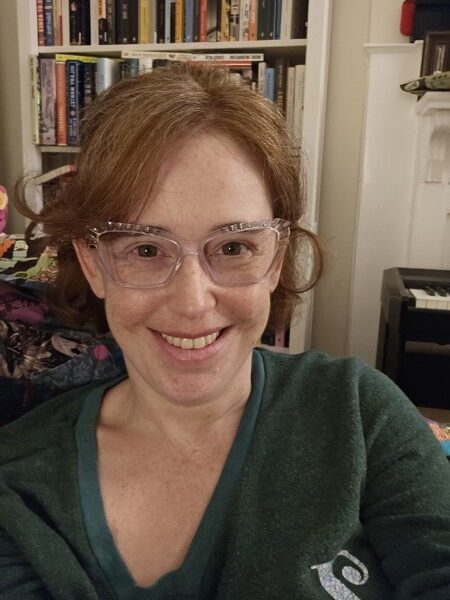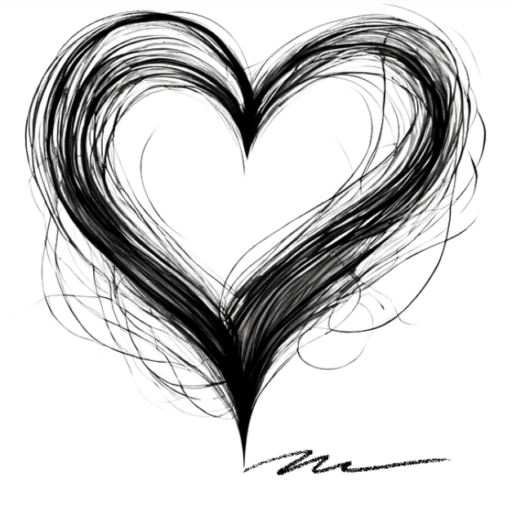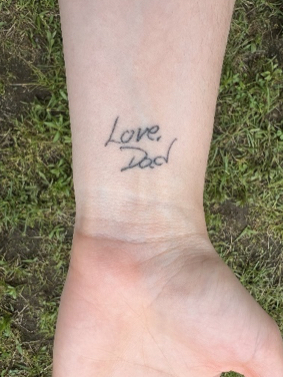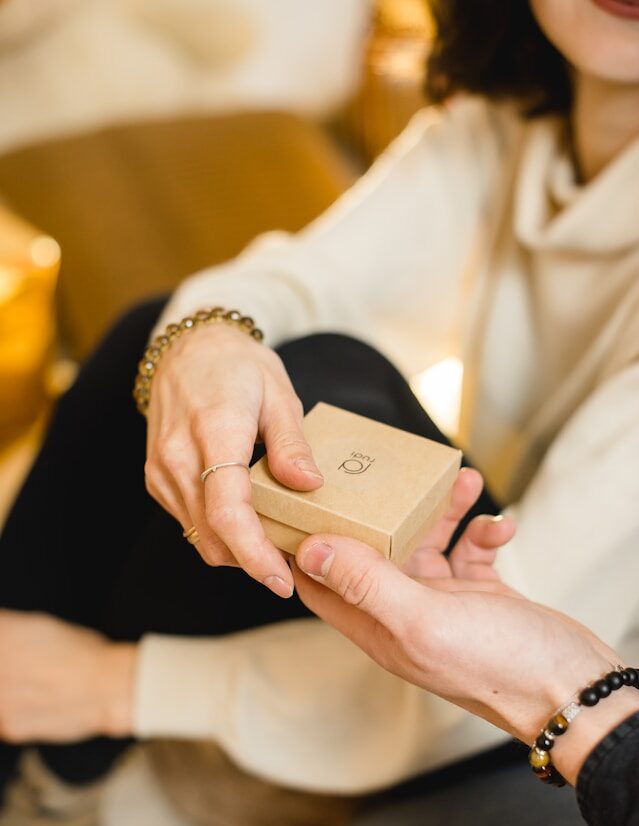Disenfranchised Grief at the Holidays
One Christmas night, as my in-laws settled in for the night and my husband worked on the New York Times crossword with the television murmuring in the background, I sat on the sofa in my pajamas and opened up my laptop. It was now almost a year since my first love died. We had been out of contact since our breakup more than two decades ago. A much-older married man, my first lover and dearest friend, he was one of the most important people in my life, and yet only two of the people I’d seen that Christmas day even knew the story. I had left him a Facebook message just after he died back in February; I knew it by heart. Thinking of you and all you gave me. Love always. I liked knowing it was there, even though he would never see it. But then, it wasn’t really for him.
I went to find it but what popped up when I searched was a post from his daughter showing her father with her mother, my ex’s wife of 60-plus years. My chest tightened like a corset closing under my flannel pajamas. “They were in love, ” she wrote, “from age 25 until their last day on Earth.” I felt another squeeze on my lungs. Maybe, I thought, my eyes resting on a blurry TV Christmas tree. Maybe. But he loved me too.
The holidays, they say, can be the hardest time of year for the grieving. They miss the rituals, the traditions they shared with a lost loved one. There will be no more carols sung, no more gifts exchanged, no more candles lit with them. The missing person’s seat at the table will always be empty. Those left behind might also miss the things they never had, the traditions they were never a part of, or maybe never even knew.
But I never spent a Christmas or a Thanksgiving with my ex. We were together more than six years but he had a life entirely separate from mine, except for the time that wasn’t. I don’t know what traditions my ex had. He was a lapsed member of a religion his wife didn’t share; I have no idea what they did. I’ll never know.
Mine isn’t the kind of grief you can buy a card for. It’s the kind you keep to yourself, because the thing you lost feels like it never belonged to you in the first place. Then, love can feel like a place in the dark.
In other versions of grief, the bereaved might miss soft purrs or barks that once welcomed them home, or snuggles on the sofa after a long day. Or they grieve what they never got to share at all with an unborn child, or the child that was given away, the child that everyone else has forgotten about or simply never knew existed. The deceased person might have struggled with addiction or mental illness. They might have committed suicide or been estranged. Holidays with them might have been hard when they were alive, filled with fights or drama. The bereaved might feel a secret relief alongside guilt and shame they also keep a secret; things are calmer now, the troubled person is at peace, and yet still they are missed so very much.
This is disenfranchised grief at the holidays, the grief that doesn’t speak its name because of shame or hoplessness or confusion, because it seems inconsequential, or because of a longstanding habit of silence or isolation. I can’t tell them about that now, the griever thinks. They don’t care. They won’t care. Why would they care? It’s an ex when I have a happy marriage. It’s just a pet. It was just a fetus. Nobody even knows I had a baby all those years ago. It’s not even my loss. I wouldn’t be welcome at the funeral. The person next to me lost a husband, a child, a parent. Who am I to take up their time, their space, with my loss? And besides it’s been years. I should be over it. I don’t want to be a bother. I don’t want to bring everyone else down. I don’t want to hear their judgement or condescension. I don’t want them to brush off my pain. It’s all I have left of what I loved. It’s all I get to keep.
All grief changes the grieving. At first, mine isolated me. A friend lost her husband to an aggressive, rare cancer around the same time that my ex died and her community rallied around the tragedy of their stolen future, their too-short life together. I was not a sainted widow; I was a mistress no one even knew about. What right did I have to sympathy, to attention? Was it even my loss? I kept quiet. I tried to pretend I was fine. On my worst days I’d dry off my face, powder my cheeks and take a selfie. Then I’d post it online and let people think everything was normal and good. (I might have been trying to convince myself, too.)
The isolation grew over time. It gnawed. I’d white-knuckle my way through a lunch with friends and sob all the way home on the subway. I started feeling like the people around me no longer knew me. They didn’t know what I was going through so they couldn’t know how to help even if I could have reached out. I knew I needed to talk; eventually, I discovered a community online of folks whose stories were similar to mine and found, little by little, that I could receive support and offer it, too. I learned about this whole world of hidden losses.
At the holidays these losses we keep secret can collide with the Hallmark movie many of us feel pressured to perform over presents and big family get-togethers and we disengage. This alienation only widens the gap between the fantasy we’re acting out and the reality of our changing self. In the New Year, when we evaluate the year that’s passed and stake out plans for the next, setting our intentions and goals, we might look back on months filled with tears and see a future where nothing has changed on the surface but we are profoundly different underneath.
Nothing much about my day-to-day changed when my ex died. We had been out of touch for nearly 20 years. I found out about his death from an Internet search; no one knew to tell me. Most people I know in the current phase of my life didn’t know me when we were together. Most would be surprised to hear the story. That first holiday season after he’d died I’d been grieving for nearly a year and the daily crying jags had slowed to once-in-a-while outbursts. Time and therapy had sanded off the edges and helped me calm, but some things could still catch and snag. The Internet could be a portal to an alternate timeline where I didn’t exist. A photo could hollow me out; a song could spike shaking tears.
By the time the holidays rolled around and Jeff and I went from our home in New Jersey to visit friends and family in Boston, I was exhausted and suffocating. One night Jeff’s friend Dave drove me to meet Jeff and his parents for dinner at a favorite local restaurant. We had known Dave for over a decade; he was a close friend but only really knew me as Jeff’s wife. We had never shared much about the past. That night was a chilly one, late December in Boston. I shivered in a thin plaid dress and tights, my toes curling into my dressy shoes. I settled into passenger seat, fussed with my dress and fixed my seatbelt. I stared ahead into the inky night. When I exhaled I felt an ache from the sobs I’d been holding back all day. “So how are you doing?” Dave asked, turning the wheel. I looked at my hands and let out a breath. I was so tired of pretending.
I told him the story. Someone I loved had died, an older man I was with in college, long before Jeff. “I haven’t really talked about it here,” I said, meaning with my family. I could feel tears building.
“Hey, it’s okay,” he said. “I get it. That sounds hard. I’m sorry for your loss.”
My shoulders fell. I even felt my toes stretch inside those tight heels. When we piled out he gave me a hugs and I made a quick sob, a quick tear falling out. I wiped it away and he kept his hand on my shoulder as we went inside. The corset around my lungs started to give way.
After that things got a little easier. I got braver; I told more people, sometimes slowly, sometimes sparing details but eventually I started with the whole story. He was married, I said, a philosophy professor. We met online. I loved him so much. He loved me too. I began writing and sharing my story with strangers in writing classes. I continued to offer what I could to the grief communities I was a part of. I got back so much more than I gave. Now I keep telling my story and each time I do, another stitch in the corset pops, and I have more and more room to breathe.

Marie Cloutier (she/her) writes about girlhood and womanhood and complicated loves and losses. Her work has appeared in Bending Genres, Dorothy Parker’s Ashes , the Sheepshead Review and elsewhere. She is at work on a memoir. Her website is www.mariecloutier.com.



